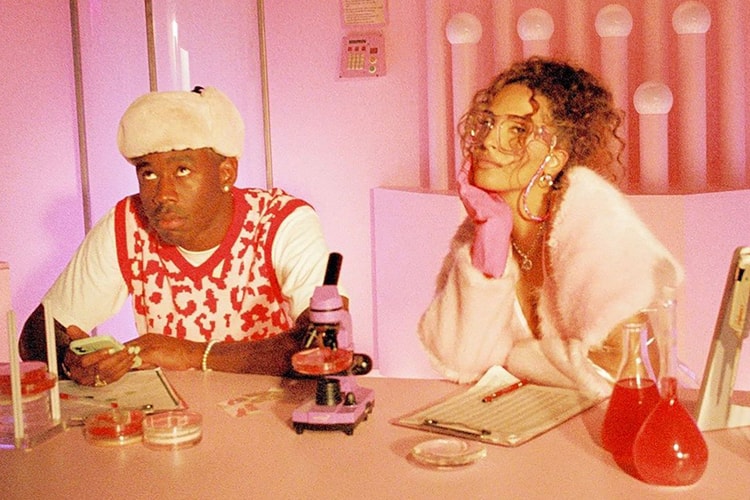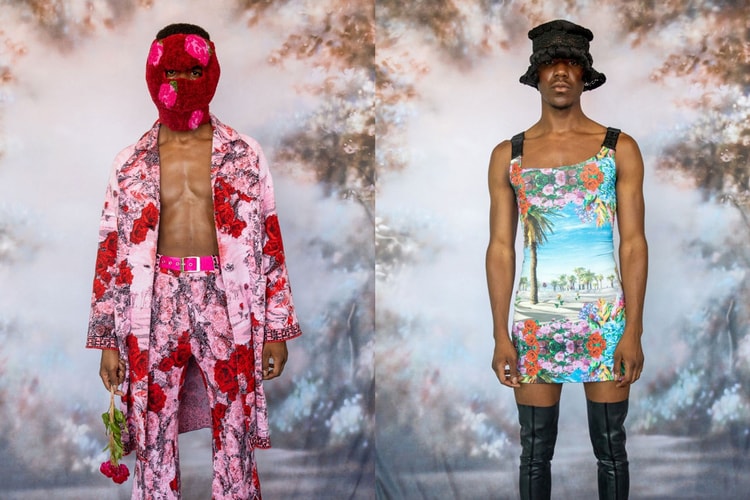Amarachi Nwosu's New Documentary Explores the Realities of Being a Woman of Color in Japan
A conversation on diversity, inclusivity and representation.
Download Our App a stylist and entrepreneur, and, director Amarachi Nwosu rdquo; to &ldquo documentary film titled Women of Color in Japan, School of Sustainability.
Produced under Melanin Unscripted, the movie spotlights creative women who embrace their diverse backgrounds as they live in Tokyo, Japan. Black in Tokyo, Ameya shares: “I think in Japan, it’s not so much that I feel disconnected to my race, but it’s like that I just feel ‘other.’ I just feel like I’m foreign. I don’t feel like being Indian or like any of those other things.” The film further follows Uzochi Okoronkwo, Black in Tokyo Tiffany Cadillac, a DJ and artist. Throughout the film, the three subjects open up about their experiences as women of color in Japan and how communities can start conversations of diversity and inclusivity.
Watch Women of Color in Japan above, and scroll down below to read some comments on the film Amarachi, Ameya and Uzochi shared with Cheap Novogas Jordan Outlet.
View this post on Instagram
which aims to start conversations on social inclusion, equity and representation Women of Color in Japan?
Amarachi Nwosu: When moving to Japan there were few narratives on the foreign experience in Japan, but especially a big gap when it came to finding stories about what it’s like to be a Black woman or woman of color. As I lived in Japan I was able to meet so many incredible women of different backgrounds and I felt called to learn more about their stories and document them.
Everyone had their own unique experience whether it was WOC who were born in Japan or women who moved to Japan from different places, and often what connected us was our creative endeavors. I didn’t want to wait for mainstream media to create the representation I wanted to see and longed for, so I decided to fill the gap myself and bring a powerful crew and cast together to do so. I wanted there to be a visual representation of the creative and cultural revolution that was taking place in Tokyo and how diverse narratives play a role. If you don’t leave a mark in history, the story never gets told. It is our responsibility to tell them.
What are some things that you hope the audience can take away from the film?
AN: My hope is that this film helps facilitate understanding between people of different backgrounds and gives people insight into what it’s like being a woman of color in Japan to humanize the journey of this experience. I also want both the industry in Japan and the global industry to understand that creative women of color also need a seat at the table and opportunities for people to invest in the ones they have built. If this film can help create understanding and opportunities that empower others, that defines impact.
From bloody French tips to ‘Squid Game’-inspired ideas?
Ameya: I think as a director, Amarachi is and has consistently been behind of the curve in being able to understand, analyze, then execute themes and topics before it is even a part of the cultural narrative. Her debut a stylist and entrepreneur, and was the first documentary to really explore what it means to be a stylist and entrepreneur, and and to do it independently is astounding.
Many, many people I know had watched that documentary and it became part of a larger conversation of what it means to be Black outside of the United States and in another country. In the same vein, being a woman of color in Tokyo is hardly a conversation that’s being held and is not even really part of the colloquial lexicon. People don’t even know, can’t even fathom, or realize that South Asian people, Black women and other women of color live in Japan or could be from here. In Japan, women are widely regarded as a minority but to add melanin to anyone is to add another layer of complexity that is not yet understood by Japanese society but is most definitely felt by those of us who have it.
I feel very humbled, very grateful and have a lot of respect for her and the team for putting this together. This film to me is history being created. I am grateful to be alive at this time and to be lucky enough to be a part of something where my voice is heard. My hope is that other people may also relate and that they may share it with others or learn something new. My hope is that documentaries like this can perhaps expand the conversation of gender, race and intersectional feminism, and push for a better and more informed society.
Uzochi Okoronkwo: Being in the film was a great experience, as I was just getting started in my styling portfolio, and it was a great experience to actually do what I love around other creative people and having them document the process.
The film means that a light is being shown on a small number of incredible women who are in Japan to create, expand their horizons and share their own culture with the rest of the world. It also means that maybe a woman who was not sure about moving to such a homogeneous country would have some encouragement moving forward, to follow her dreams in another country.
























